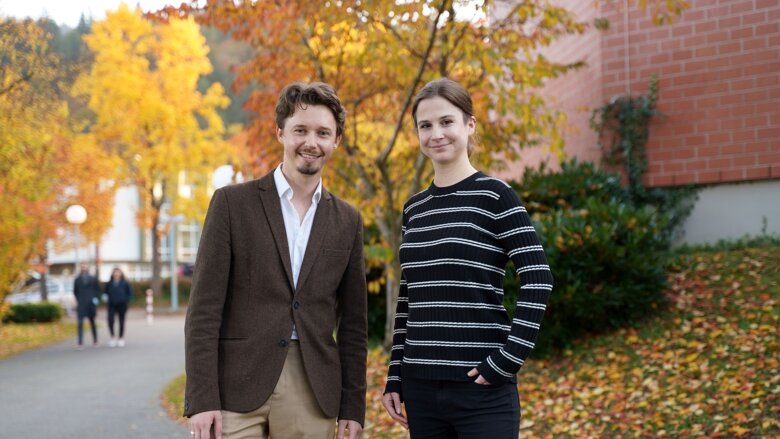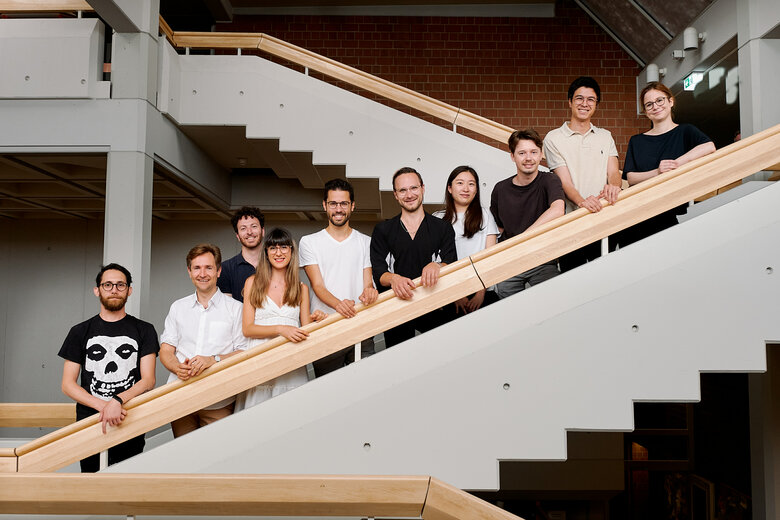»Collège doctoral européen d’interprétation et de création musicales«
Franco-German doctoral programme of Freiburg University of Music, University of Strasbourg and »Haute école des arts du Rhin« (HEAR)
Short presentation
Founded in 2020, the »European Doctoral College for Musical Interpretation and Artistic Research« (»Collège doctoral européen d'interprétation et de création musicales«, CDE ICM) is the joint Franco-German doctoral programme of Freiburg University of Music, University of Strasbourg and »Haute école des arts du Rhin« (HEAR). The doctoral college enables doctoral studies in the field of artistic research, which are concluded with the academic degree of »Doctor of Philosophy« (PhD).
The CDE ICM is funded within the framework of the Franco-German University / Université franco-allemande.
The website of the CDE-ICM in French
The website of the CDE-ICM in English
The website of the CDE-ICM in German
Dates and events
Coming up
13-14th November 2024, study days »Artistic Research« at the Hochschule Luzern, Departement Musik
27-28th June 2024, seminar in Freiburg
Archive
26th January 2024, »Air'Rhena«, concert in the Art'Rhena on the Ile du Rhin next to Breisach Programme
10-11th January 2024, seminar in Strasbourg ProgrammeConcert programme
13th November 2023, study day »Artistic Research« at the Hochschule Luzern, Departement Musik Programme
3rd July 2023, study day »Artistic Research« in Freiburg Programme
21st-22nd June 2023, seminar in Freiburg ProgrammeConcert programme
11-12th January 2023, seminar in Strasbourg ProgrammeConcert programme 11th Concert programme 12th
15-16th June 2022, seminar in Freiburg Programme
8-9th December 2021, seminar in Strasbourg
18th June 2021, seminar in Freiburg
Selection procedure
Modalities
The prerequisite for admission to the CDE ICM is passing the selection procedure. As a rule, the selection procedure takes place annually in April/May, alternately in Freiburg and Strasbourg. In order to qualify for the selection procedure, applicants must have sent a »dossier de candidature« to the Directorate of the CDE ICM by the indicated deadlines (doctorat-icmaccra-recherche.unistra.fr). The application can be submitted in German, French or English.
Further details on the dossier and selection procedure can be found in Anlage C of the study and examination regulations for the cooperative structured doctoral program of the »European Doctoral College for Musical Interpretation and Artistic Research« here in the Downloads area and on thewebsite of the Collège doctoral européen.
Deadlines in 2024
2 February 2024:
submission deadline for the pre-application declaration (specifying the artistic discipline, the preliminary research topic and the designated scientific and artistic supervisors)
from 2 February 2024 to 5 April 2024:
preparation of the scientific and artistic project with the scientific and artistic supervisors
5 April 2024:
submission deadline for the documents for the application file
15 April 2024:
jury decision on the pre-selection of candidates admitted to the artistic selection process
16 May 2024:
artistic selection process at the HEAR Strasbourg
23 May 2024:
notification of the jury decision to the candidates
from 23 May 2024:
in case of a positive decision, start of the admission and enrolment procedure at the Freiburg University of Music and/or Université de Strasbourg and/or HEAR

Composer Meike Senker and flutist Kacper Dąbrowski are part of the first cohort to complete their doctorates at the »Collège doctoral européen d'interprétation et de création musicales.« In this interview from December 2021, they talk about what convinced them about the doctoral college, how they bring science and art together, and what advice they would give to other doctoral students. Click here for the interview
2024
»Collège doctoral européen d’interprétation et de création musicales : conjuguer recherche et création artistique«. In: Savoir(s), 11.01.2024. https://savoirs.unistra.fr/campus/college-doctoral-europeen-dinterpretation-et-de-creation-musicales-conjuguer-recherche-et-creation-artistique
2023
»Un nouveau collège doctoral fait vibrer la musique et la science«. In: Voisins-Nachbarn, 17.11.2023.
https://www.voisins-nachbarn.eu/fr/rechercher/un-nouveau-college-doctoral-fait-vibrer-la-musique-et-la-science.html
2021
»Artistic Research im Grenzgebiet. Das binationale Doktorandenkolleg CDFA startet erfolgreich ins zweite Jahr«. In: Neue Musikzeitung (nmz) 12/2021, vol. 70. https://www.nmz.de/bildung-praxis/hochschulen-akademien/artistic-research-im-grenzgebiet
«Quand musique et recherche se jouent des frontières». In: Savoir(s) 42, p. 18, June 2021. https://applications.unistra.fr/unistra/visionneuse/Savoirs/42/18/
Selection procedure 2024
Interested candidates can find all informationen on the website of the CDE ICM.
Downloads
Downloads for the cooperative structured doctoral program of the »Europäischen Doktorandenkollegs für musikalische Interpretation und künstlerische
Forschung / Collège doctoral européen d’interprétation et de création musicales« (in German)
Anlage A zur Studien- und Prüfungsordnung (Studienplantabelle)
Anlage C zur Studien- und Prüfungsordnung (Anmelde- und Auswahlmodalitäten)


